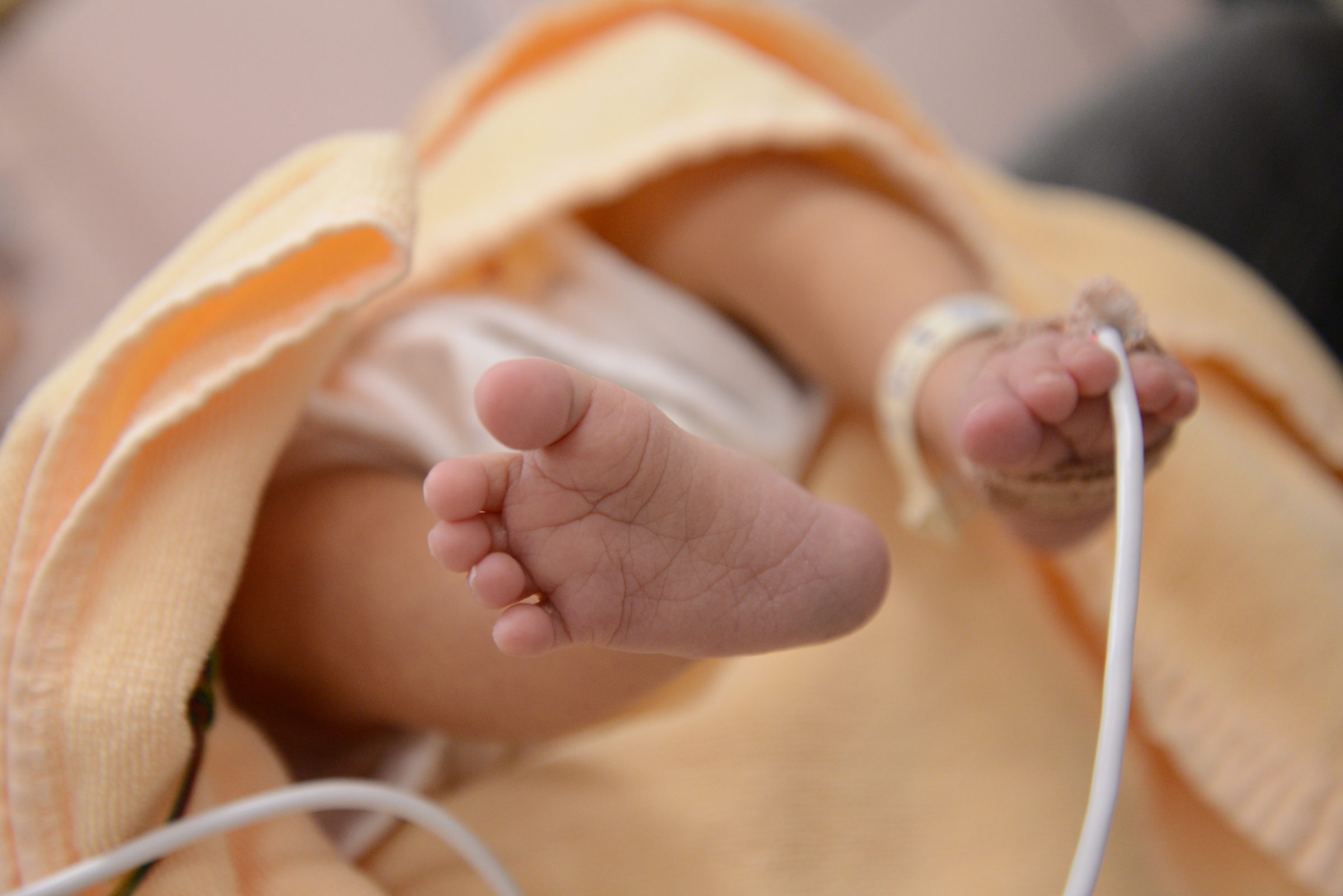Baby’s Parents Refuse to End Life Support, Lose Custody to State
Originally published at National ReviewKeaton Crull, a three-month-old baby from Indiana being treated in Kentucky, is about to be removed from life support over his parents’ objections. That’s because they no longer have a say. Their parental rights over his medical decisons were stripped–and it looks like that drastic step might have been taken because they refused to give up on him.
Keaton has a serious case of muscular dystrophy and has broken bones from birth that are not healing properly. He is on pain control. The doctors say that Keaton’s health is worsening and he won’t live a year, and so the life support is futile. But according to the parents, doctors previously said he would only live a month. These things can be very uncertain.
Doctors want to remove life support and the parents have no say. From the ABC57 story:
“They took custody of him on… I want to say the 22nd (August),” Kyle says.
According to confidential documents we obtained from a Kentucky Child Protective Services hearing, doctors at Norton claim the Crulls abandoned their son by being “minimally involved,” so the state of Kentucky took custody of Keaton, which gives the hospital the authority to make medical decision instead of the Crulls.
“They expect us to stay there with him 24/7 and we can’t,” Kyle explains. “We have other kids and bills and stuff like that that we have to maintain, so we made a decision, as a family, to go down there on the weekends,” Kyle says.
“I made the hospital aware that I would be working between 5 a.m. and 3 p.m., so I couldn’t take every call that I got, especially being a new employee,” Jennifer says, adding her last job didn’t work out because of Keaton’s constant need for care…
“On the 29th (September), there’s going to be court and, basically, me and my wife have to give a defense of why our son should get this medicine and why we should continue to fight for his life and not give up on him,” Kyle says.
Hard cases make for bad decisions. The question is: Where should the decisional benefit of the doubt be given? I say with family. A few points.
- This is an example of “futile” or “inappropriate care,” a bioethics theory under which doctors or bioethicists are enabled to make the decision to stop life support instead of the patient or family. In Texas, this can be done directly. In this case, the right to decide was stripped from the parents by a court, and apparently given to the hospital–where it doesn’t belong. This is not the first such case of parents stripped of their custody over such disputes–as I documented in my book Culture of Death: The Age of ‘Do Harm’ Medicine.
- From what I can tell in the story, the doctors took this action because the Crulls refused to do what they wanted. Had they agreed to pull the plug, I doubt protective services would ever have been called.
- But the excruciating decision whether to carry on and try long-shot medications is not a medical decision so much as a value judgment. When the time has come to stop fighting and let nature take its course should not be up to doctors unless the desired intervention would be physiologically ineffective. That isn’t the case here. Clearly, the desired treatment is working, i.e., it is keeping the patient alive.
- In the end, these decisions are often about money as well as a conflict of values between doctors and family.
Coercion destroys comity in health care. Futile care impositions undermine patient autonomy. Cases like this are tough, but they fuel the ongoing disintegration of people’s trust in our medical institutions.
